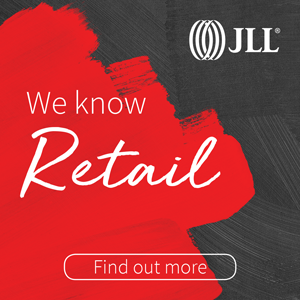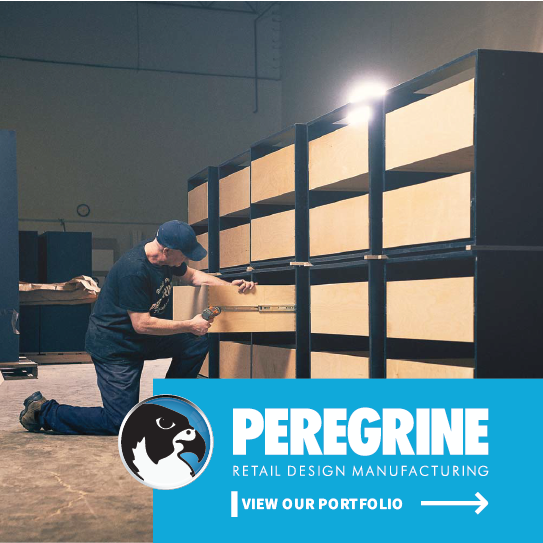Retailers Among Canada’s Most Trusted Brands: Study
/By Mario Toneguzzi
The fifth annual Gustavson Brand Trust Index discovered one interesting trend this year - the top three most trusted brands in Canada are membership-based businesses.
And what’s becoming increasingly more important is the values of a business.
The Index is produced by the Peter B. Gustavson School of Business at the University of Victoria. Another key trend it discovered is that consumers are more willing to place a brand in positive light when criticism is responded to with honest and authentic remedies.
PHOTO: MEC
The most trusted brand in Canada was MEC (Mountain Equipment Co-Op) followed by CAA (Canadian Automobile Association) and Costco Wholesale. Rounding out the top 10 most trusted brands in Canada are: Home Hardware, Home Depot, Fairmont Hotels and Resorts, Band-Aid, Shoppers Drug Mart/Pharmaprix, Interac, Columbia Sportswear, and Canadian Tire.
The report said MEC led this year’s ranking despite consumer criticism over the lack of diversity in their advertisement but their adept response to concerns ensured they maintained consumer trust.
“Consumers are paying closer attention to a brand’s values and its social responsibility,” said Dr. Saul Klein, Dean of the Gustavson School of Business. “Being honest and authentic, and communicating a plan of action when faced with criticism, for example, ensured that MEC didn’t lose trust among its customers - and that made all the difference.”
Klein said the Index first began with the concern that very broadly across society there was an erosion in trust in key institutions, in business. That was a bit disturbing but it begged the question as to what could be done about it.
The Index was created to measure the extent to which Canadians trust all of the major consumer-facing brands and to try to understand more about what’s driving trust. And of course to try to show that trust matters.
“Our Index continues to highlight the importance of a company standing up for its values, through its words and its actions, and the effect this has on consumer trust,” said Klein. “The Brand Trust Index also shows that failures on this front can lead to drastic negative impact on a brand’s overall trust among consumers.”
The 2019 Gustavson Brand Trust Index measured opinions of over 7,200 Canadian consumers on 313 national brands across 26 different product categories.
Klein said there is a very high correlation between the extent to which people trust a brand and the likelihood to recommend that brand. There are also indications in the Index that trust is a leading indicator of revenue growth.
Looking at the top three companies in this year’s ranking, he said there is something about that membership relationship that allows the brands to better understand the customer. They know them better. It allows them to respond better to those customers. There’s also a much stronger affinity or loyalty there in membership-based organizations.
This year’s report also found:
Consumers have different expectations of brands depending on what they sell – consumers place more value on relationship trust with service-based brands. In contrast, consumers place more value on functional trust with product-based brands;
While trust in key institutions has eroded significantly over the past few years, the average brand trust score for all brands surveyed in the 2019 trust index has gone up compared to last year;
Female consumers are more trusting than their male counterparts, while millennials are less trusting compared to any other generation; and
Eight out of 10 brands at the bottom of the Gustavson Brand Trust Index also ranked among the brands that Canadians are least likely to recommend.
What is driving trust? Klein said there are really three dimensions underlying trust in a brand. One is a very functional one. Does a brand deliver its promises? Is it reliable, consistent, good value for money, good quality?
The second gets to more about the personal relationship the individual consumer has with the brand and it’s about relational trust. People trust brands not only because of their functional attributes but also because of what they do for people and how they treat people. Do they communicate with consumers honestly? Do they respect consumers’ privacy? Do they go out of their way to fix things when things go wrong?
Klein said there’s a third dimension that no one really has been looking at but he thinks it’s the most exciting one going forward - and that’s the value-based dimension. Consumers are looking to use their purchasing power to have a bigger impact in society and they want to support brands whose values are more aligned with their own. Conversely, they don’t want to be spending money on brands even if they provide good functional and service levels if they have alternatives who are behaving in a more responsible way. Does the brand respect and protect the environment? Do they treat employees well? Do they make positive contributions to the local community? Do they have a positive impact on society?
“What we’re suggesting is that over time it becomes harder and harder for brands to differentiate themselves on purely functional and relational characteristics and that values are becoming and in the future will become even more important,” said Klein.
The report also discovered what it described as “dismal performance” of social media platforms with declines in trust for Facebook, Snapchat and Instagram. This erosion of trust in social media continues from small losses in the 2018 study to much larger distrust amongst consumers in 2019, with social media brands now accounting for four of the nine least trusted brands in Canada, said the report.
“The dimensions of trust are becoming more important. We see a bit of an evolution going on. If you go back probably more than 20 years, products were sold and brands were developed based on very functional characteristics and over time product quality improved and it became harder and harder for businesses to differentiate themselves from others on a purely functional basis,” said Klein.
“What we saw happening really in the 1980s and into the 1990s was a shift towards competing more on a service dimension. So products became seen as vehicles to deliver services and while two organizations could have the same product, if one had better service quality associated with that then that brand would be able to differentiate itself and succeed in the marketplace.”
Now, Klein said a new trend is developing as it’s going to become harder and harder to differentiate yourself as a brand based on service. The value basis will become the key differentiator going forward.
“It’s not to say that consumers are going to trade off product quality or good service but other things being equal and increasingly it will be harder to differentiate on product and service values become the important differentiator,” he said.
“It’s really about being authentic in what you do. We think that’s the evolution.”
Mario Toneguzzi, based in Calgary has 37 years of experience as a daily newspaper writer, columnist and editor. He worked for 35 years at the Calgary Herald covering sports, crime, politics, health, city and breaking news, and business. For 12 years as a business writer, his main beats were commercial and residential real estate, retail, small business and general economic news. He nows works on his own as a freelance writer and consultant in communications and media relations/training. Email: mdtoneguzzi@gmail.com.






















![L.L.Bean Continues Canadian Expansion with 1st Toronto Store [Photos]](https://images.squarespace-cdn.com/content/v1/529fc0c0e4b088b079c3fb6d/1603908990197-KDT3UNTEHFBFJF5FJ36N/L.L.Bean_Don_Mills_8.jpg)





![Retail-insider-NRIG-banner-300-x-300-V01-3[2].jpg](https://images.squarespace-cdn.com/content/v1/529fc0c0e4b088b079c3fb6d/1593476525034-QRWBY8JUPUYFUKJD2X9Z/Retail-insider-NRIG-banner-300-x-300-V01-3%5B2%5D.jpg)
![Retail-insider-NRIG-banner-300-x-300-V01-2[2].jpg](https://images.squarespace-cdn.com/content/v1/529fc0c0e4b088b079c3fb6d/1593476491497-W6OZKVGCJATXESC9EZ0O/Retail-insider-NRIG-banner-300-x-300-V01-2%5B2%5D.jpg)
![Retail-insider-NRIG-banner-300-x-300-V01-4[2].jpg](https://images.squarespace-cdn.com/content/v1/529fc0c0e4b088b079c3fb6d/1593476508900-TJG5SNQ294YNOCK6X8OW/Retail-insider-NRIG-banner-300-x-300-V01-4%5B2%5D.jpg)